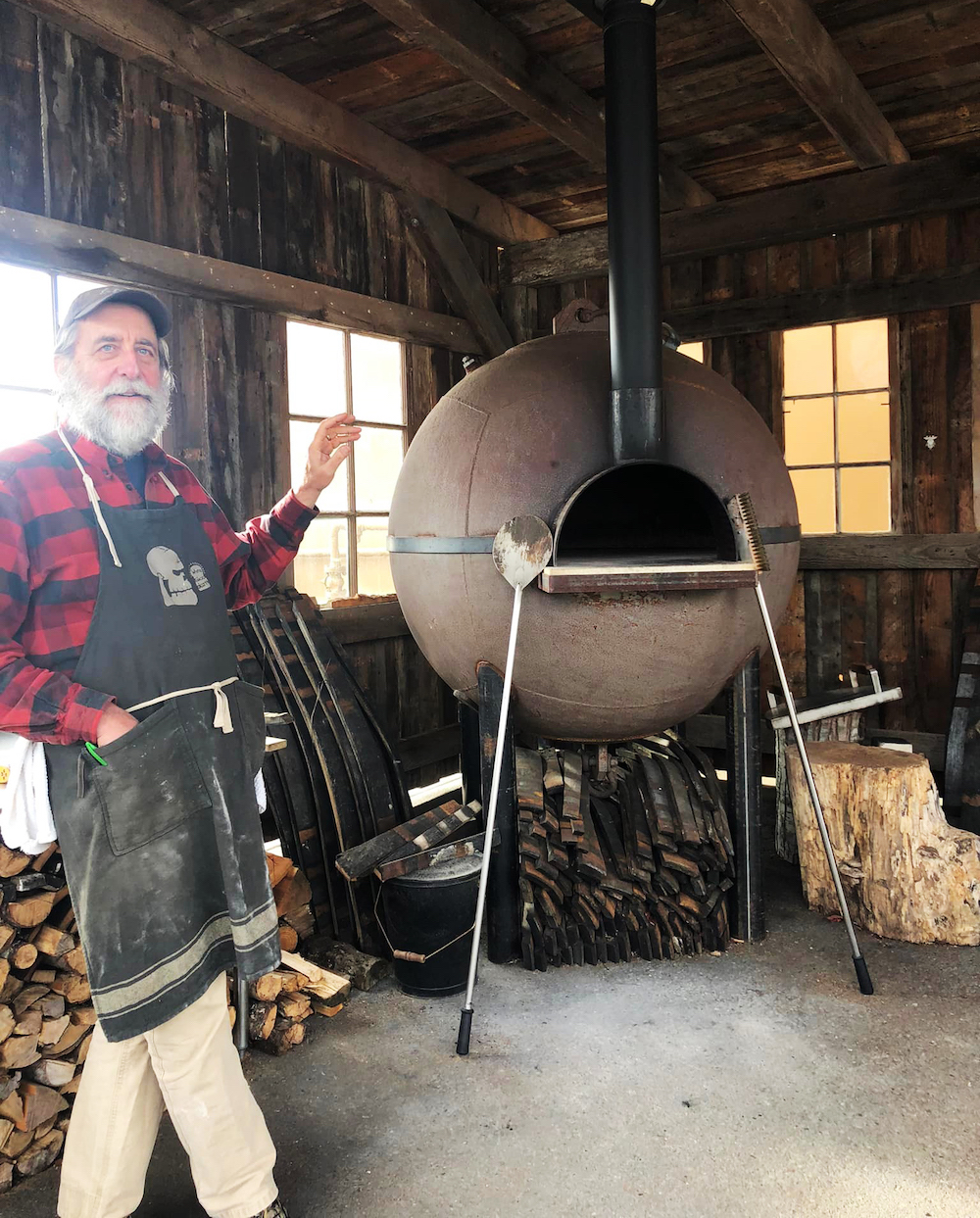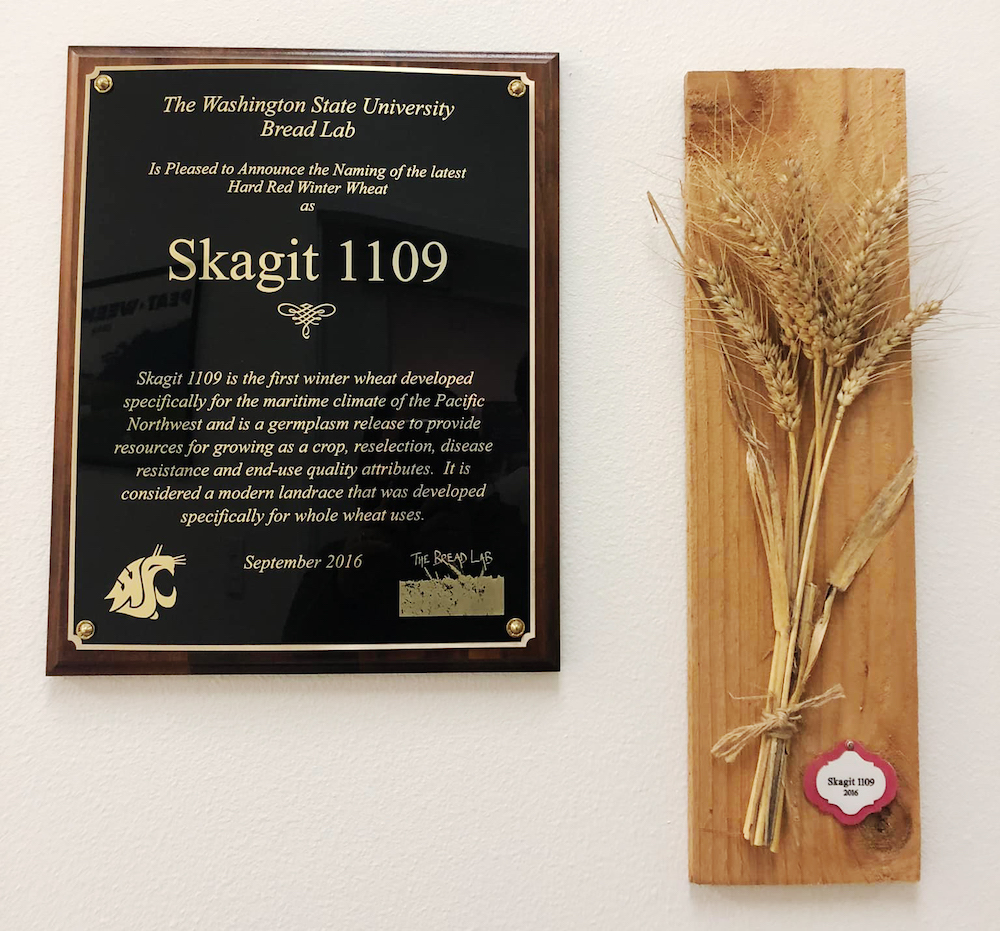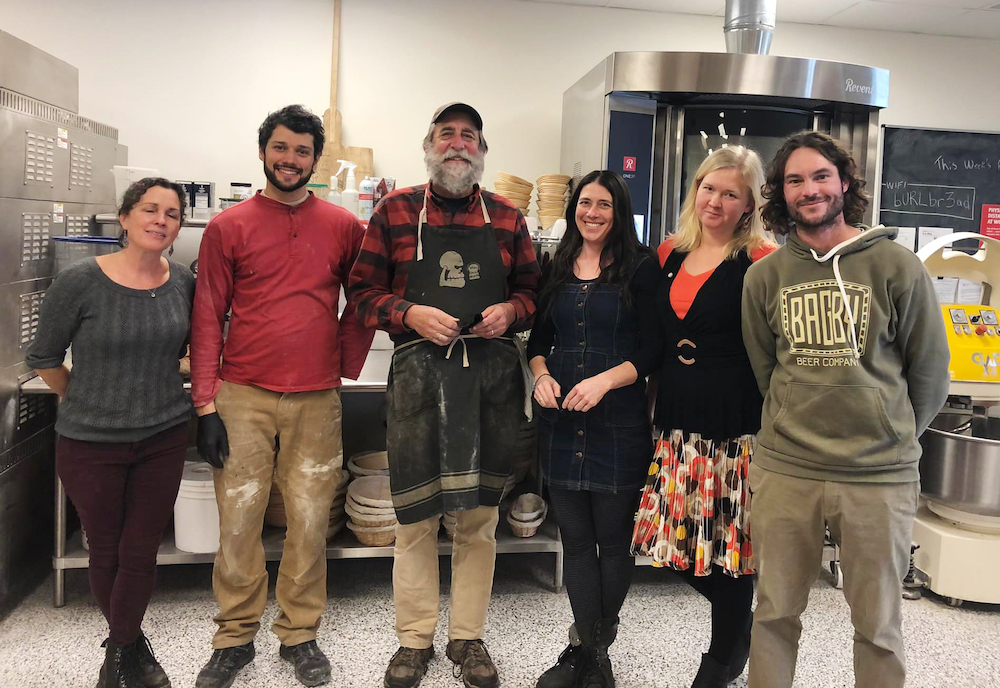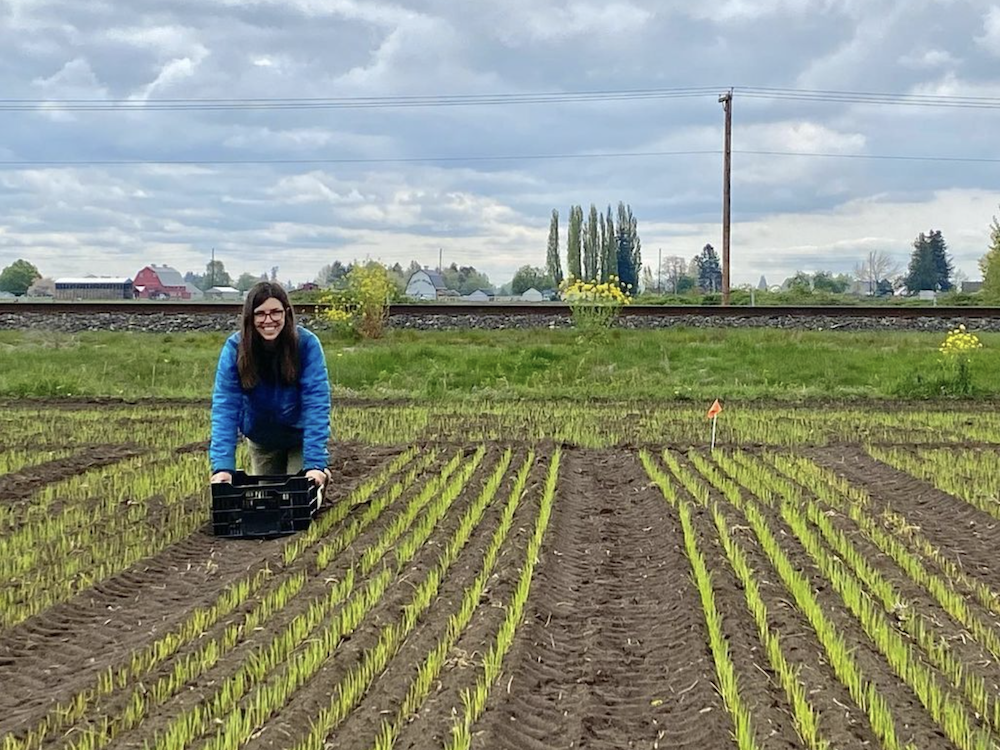 One of the most exciting innovations at Macrina in recent years is our focus on the flour we use in our naturally leavened breads. The central resource in our search for the most flavorful and nutritious wheat is the nationally renowned Bread Lab, an extension of Washington State University. Located an hour north of Seattle in Skagit Valley, Bread Lab is run by Dr. Steven Jones. He is devoted to bringing grain agriculture back to our region.
One of the most exciting innovations at Macrina in recent years is our focus on the flour we use in our naturally leavened breads. The central resource in our search for the most flavorful and nutritious wheat is the nationally renowned Bread Lab, an extension of Washington State University. Located an hour north of Seattle in Skagit Valley, Bread Lab is run by Dr. Steven Jones. He is devoted to bringing grain agriculture back to our region. A hundred years ago, fields of grains filled the Skagit Valley, but as industrial wheat brought the commodity price down, farmers shifted to more valuable crops. Commodity flour—the inert, shelf-stable white flour we’re all familiar with—became commonplace throughout America early in the 20th century. The shift away from regional wheat and local stone-ground milling resulted from the roller mill, an industrial method that produced a more uniform shelf-stable flour at less cost. Growers bred wheat for the new mills. Yield, not flavor, was the key metric. As a result, our nation’s wheat crops were rapidly homogenized. Community flour mills that once processed locally-grown wheat—there had once been more than 2,000 throughout the country—mostly vanished. Wheat, once cultivated into various strains that thrived in the particular microclimate, was reduced to a handful of hard red winter wheat strains. In the name of efficiency, most farmers abandoned the flavorful and nutritious strains of wheat and grew what fetched the highest price. America got cheap flour and Wonder Bread.
A hundred years ago, fields of grains filled the Skagit Valley, but as industrial wheat brought the commodity price down, farmers shifted to more valuable crops. Commodity flour—the inert, shelf-stable white flour we’re all familiar with—became commonplace throughout America early in the 20th century. The shift away from regional wheat and local stone-ground milling resulted from the roller mill, an industrial method that produced a more uniform shelf-stable flour at less cost. Growers bred wheat for the new mills. Yield, not flavor, was the key metric. As a result, our nation’s wheat crops were rapidly homogenized. Community flour mills that once processed locally-grown wheat—there had once been more than 2,000 throughout the country—mostly vanished. Wheat, once cultivated into various strains that thrived in the particular microclimate, was reduced to a handful of hard red winter wheat strains. In the name of efficiency, most farmers abandoned the flavorful and nutritious strains of wheat and grew what fetched the highest price. America got cheap flour and Wonder Bread.  The rise of artisan bread in America that started in the 1980s challenged the dominance of the ubiquitous pre-packaged supermarket loaf. More recently, the popularity of home bread baking and sourdough starters is a turn back to the days when many homemade loaves were common. This pre-industrialized turn is reflected in a new generation of farmers and artisan millers interested in a tastier, healthier, and more sustainable approach to growing and milling wheat locally. Many of them, like us, turn to Dr. Jones.
The rise of artisan bread in America that started in the 1980s challenged the dominance of the ubiquitous pre-packaged supermarket loaf. More recently, the popularity of home bread baking and sourdough starters is a turn back to the days when many homemade loaves were common. This pre-industrialized turn is reflected in a new generation of farmers and artisan millers interested in a tastier, healthier, and more sustainable approach to growing and milling wheat locally. Many of them, like us, turn to Dr. Jones.  Macrina has partnered with the Bread Lab for years, uses locally-grown and milled wheat developed by the Bread Lab, and Leslie Mackie, Macrina’s founder, has been a member of their advisory board. Earlier this year, our leadership team visited to talk with Dr. Jones and his team of researchers.
Macrina has partnered with the Bread Lab for years, uses locally-grown and milled wheat developed by the Bread Lab, and Leslie Mackie, Macrina’s founder, has been a member of their advisory board. Earlier this year, our leadership team visited to talk with Dr. Jones and his team of researchers. 
 “Dr. Jones is working on developing organic grain to plant in the fertile Skagit Valley,” Leslie said. “The farmers produce huge amounts of potatoes, cabbage, and more and need a good rotation crop to break disease cycles and to restore vital elements to the soil. The Bread Lab breeds grain for flavor, ease of growing in our region without chemicals, great performance for bakers like us, and great yield so farmers get a fair value for their work. Dr. Jones also intends to make the grain accessible to everyone, not just high-end bakeries. That’s supporting our local economy on all levels.”
“Dr. Jones is working on developing organic grain to plant in the fertile Skagit Valley,” Leslie said. “The farmers produce huge amounts of potatoes, cabbage, and more and need a good rotation crop to break disease cycles and to restore vital elements to the soil. The Bread Lab breeds grain for flavor, ease of growing in our region without chemicals, great performance for bakers like us, and great yield so farmers get a fair value for their work. Dr. Jones also intends to make the grain accessible to everyone, not just high-end bakeries. That’s supporting our local economy on all levels.”  Macrina pledged our continued support for Bread Lab through their Bread Collective program. Participating bakeries make a sliced loaf that uses at least sixty percent whole wheat flour, is made with only seven ingredients (no chemicals, only real food) and is sold for six dollars or less. Our Organic Whole Wheat Loaf, sold in our cafes and grocery stores, is our Bread Collective contribution. A portion of the sales of this loaf helps the Bread Lab in its mission to bring together a community of people across the wheat ecosystem, from bakers to brewers, to experiment with the flavor, nutrition, and functionality of wheat.
Macrina pledged our continued support for Bread Lab through their Bread Collective program. Participating bakeries make a sliced loaf that uses at least sixty percent whole wheat flour, is made with only seven ingredients (no chemicals, only real food) and is sold for six dollars or less. Our Organic Whole Wheat Loaf, sold in our cafes and grocery stores, is our Bread Collective contribution. A portion of the sales of this loaf helps the Bread Lab in its mission to bring together a community of people across the wheat ecosystem, from bakers to brewers, to experiment with the flavor, nutrition, and functionality of wheat.  After a delicious lunch prepared by the Bread Lab team of whole-grain pizza and a salad of local greens and pickled Skagit vegetables, we returned more inspired than ever to continue to innovate with the locally-grown hybrid heirloom strains of wheat developed by Dr. Jones. It’s an exciting time to be baking bread!
After a delicious lunch prepared by the Bread Lab team of whole-grain pizza and a salad of local greens and pickled Skagit vegetables, we returned more inspired than ever to continue to innovate with the locally-grown hybrid heirloom strains of wheat developed by Dr. Jones. It’s an exciting time to be baking bread!
All photos courtesy of @WSU_Bread_Lab Instagram.
